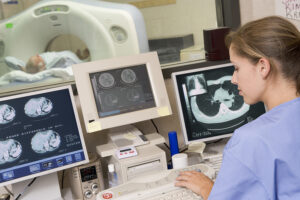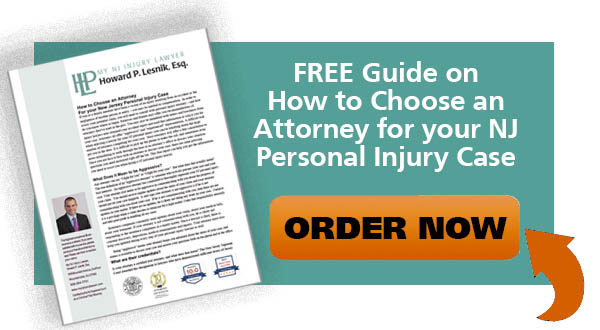Concussion injuries, referred to in the medical profession as traumatic brain injuries (TBIs), are at once among the more common injuries suffered by both children and adults, and one of the more dangerous kinds of injury. Every year, emergency rooms across the United States treat roughly 2.5 million head injuries, and correctly diagnosing whether a patient has sustained a TBI is key to ensuring proper treatment and optimal recovery. Unfortunately, concussion injuries aren’t always easy to diagnose.
There are two main examinations for diagnosing TBIs: the first involves the use of CT scans, which are expensive imaging exams that expose the patient to radiation in order to create images of their brain. The other test studies the patient responses for symptoms as well as their ability to perform basic cognitive tasks. Unfortunately, this method is inherently subjective, requires a baseline (non-injured) result to compare against for best accuracy, and is susceptible to error when patients memorize the “correct” responses in order to appear healthy – this is a particular problem with athletes and military personnel, who are motivated to avoid being sidelined for an injury, but at the same time are at a greater risk than the general public of being injured again. Anyone who was watched an NFL, college, or high school football game is all too familiar with the dreaded “concussion protocol.”

New medical developments may offer doctors the ability to diagnose concussion injuries without relying on subjective patient assessments or expensive, radiation-dosing imaging scans. Last year, the US Food and Drug Administration approved the use of the Banyan Brain Trauma Indicator, a blood test that measures the levels of certain proteins that are released into the bloodstream from the brain in response to a TBI. In a clinical trial involving 1,900 head injury patients, the blood test correctly predicted that a CT scan would reveal evidence of damage to brain tissue 97.5 percent of the time, and correctly identified that a patient’s CT scan would be free of damage 99.6 percent of the time. Diagnosis using the blood test is relatively quick, with results ready in three to four hours. However, the proteins measured by the test are released within 12 hours of the injury, so a medical evaluation is important ensure an accurate diagnosis through this method.
Another new kind of diagnostic test for TBIs was approved by the FDA this year. The EyeBOX, developed by Oculogica, tracks a patient’s eye movements as they watch a four-minute video as part of the test, and analyzes the eye-movement data to assess whether the patient has sustained a concussion injury. This method requires no baseline measurement, making it suitable for emergency room settings, and provides an entirely objective standard for diagnoses. The EyeBOX test is entirely non-invasive, as it simply records and measures the patient’s eye movements in response to a video, and can be completed in a matter of minutes. The FDA has approved EyeBOX for use in both pediatric and adult patients from ages 5 to 67. EyeBOX does not boast the same impressive accuracy rates as the Banyan Brain Trauma Indicator test, but remains accurate for months after the initial injury, with an 84 percent accuracy rate at an average of 22 weeks out from the injury date.
Prompt and accurate diagnosis of TBIs is critical both to secure an optimal recovery for the patient, and to ensure their short-term safety. TBI patients who return to normal activities too soon (especially when those activities involve a heightened risk of head injury, as is the case with athletes and military personnel) may risk sustaining a second concussion injury before the symptoms of their original TBI have resolved, which can result in a deadly condition called second-impact syndrome. Accurate diagnosis of TBIs, either at the emergency room or even in the field, helps to prevent patients from returning to work or play prematurely when doing so could result in death or profound disability.
Accurately diagnosing TBIs is also essential to ensure that the patient has the resources they need to make as complete a recovery as possible. Patients with concussion injuries should avoid activities that cause visual or cognitive strain, as these stresses interfere with the healing process and prolong the recovery period. Children may need particular help when recovering from a concussion injury due to the impairment that TBIs cause to cognitive, sensory, and emotional processes. Special attention needs to be paid to make sure that TBI symptoms are not being misattributed to behavior problems or similar issues.
In all likelihood, doctors will not rely upon one single diagnostic test or method to determine whether a patient has sustained a TBI, now or in the future. But these new diagnostic methods will provide valuable supplements to existing tools, making diagnoses faster and more accurate, and thereby increasing the likelihood that every patient will receive the care they need to recover. If you or a loved one has suffered a TBI as a result of negligence, consult an experienced personal injury attorney to learn your options regarding compensation for losses resulting from that trauma.
Contact MyNJInjuryLawyer
If you or a loved one suffered a concussion or traumatic brain injury in NJ, you should contact an attorney familiar with handling these claims. An experienced NJ Injury Lawyer will know how to obtain medical records, videos, photographs, experts, locate witnesses and contact the insurance company so you can make a claim for your TBI injuries.
My NJ Injury Lawyer Howard P. Lesnik, Esq. offers free strategy sessions to address any issue or questions you may have for your injury claim in NJ.
Please contact NJ Injury Lawyer Howard Lesnik, Esq., immediately if you were involved in an accident. I personally handle NJ personal injury cases on a regular basis. Please contact me now by email, by phoning 908.264.7701, or by completing the form to the right to schedule your complimentary 30-minute strategy session.


